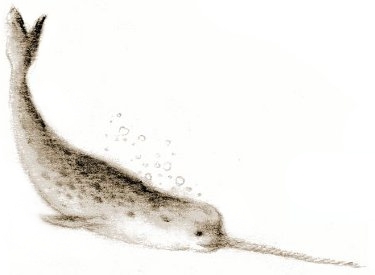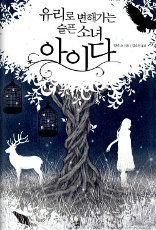|
'A magical fable of fate and resignation.' - Guardian
“Fantastically
imagined. . . . Each character Shaw introduces helps us to see the story
in context. All of them confess secrets that feel like clues, but they
don’t reveal much about Ida’s transformation. Instead, they lead us to a
more existential mystery: why people fail to live bravely. The hybrid
form of the book—fairy tale, myth, psychological realism and
fantasy—impresses. But Shaw’s most delightful offerings are the vivid
details he provides to make the magical real. . . . Fairy tales and
myths often conclude with lessons. The heroine is rewarded, the witch
burned. Shaw’s world mirrors our messier one. Goodness doesn’t
automatically bring reward. Pain never fully leaves us. As Ida turns to
glass, Midas must continue his own transformation, from hardened to
human. The end of the book, saturated with color and emotion, is risky
and brave like the message it imparts. Only a heart of glass would be
unmoved.”
—Robin Romm,
New York Times Book Review
“Shaw has
worked the great tradition of European fairy tales and come up with an
ingenious story. . . A magical fable of fate and resignation.” —The Guardian
—Patrick Ness, author of Monsters of Men
“Ali Shaw has
created a memorable addition to [the] fabulist pantheon in his gorgeous
first novel, The Girl with Glass Feet. . . . Over the course of
this eerie, bewitching novel, the mixture of love and grief and the
imminence of death become as memorable as Ida’s mysterious, dreadful
transformation and Midas’s more achingly human one. . .
Shaw
acknowledges the influence of writers like Andersen, Kafka and Borges
(Shaw's menagerie of perfectly detailed, marvelous creatures could have
stepped from the pages of "The Book of Imaginary Beings"). But it’s
Andersen’s melancholy tales, steeped in loss and a brooding sense of
fatedness, that shimmer around the edges of The Girl with Glass Feet.
Every
character in this novel yearns for a love that seems just out of reach:
Midas's unhappy parents; Henry Fuwa; Carl Maulsen, who loved Ida's
mother; Emiliana, the island woman who might have a cure for Ida's
illness; Ida herself—all of them are bound by threads of betrayal and
desire and hope, until Fate cuts those threads, calmly and without
remorse.” —Elizabeth Hand, Washington Post
“The Girl
with Glass Feet is a love story, not just about two people falling
in love, but also about love itself: its power, its limits, and its
consequences. . . . The Girl with Glass Feet is a classic
questing tale: two young lovers searching for a holy grail. . . . Full
of magical surprises. . . . Midas is reminiscent of another improbably
romantic lead: Quoyle of E. Annie Proulx’s The Shipping News.
Like Quoyle, Midas’s character acts as a passive fulcrum around with the
increasingly dreamlike characters and plot developments of the novel
spin. Midas Crook. Glamsgallow. Gurmton. The names of places and people
are positively Dickensian. There are, in fact, Victorian touches
everywhere. And although Shaw’s novel is set in the present,
everything’s turned askew, resulting in a world that is at once
banal—the car won’t start; the coffee’s getting cold—and
fantastical—glass feet; glass hearts. Shaw makes the crucial decision to
leave the human emotions and relationships in the realm of the
believable, while embedding them in terrain that is ever so slightly
surreal. Somehow it’s never implausible. Shaw is at his best when
describing the fantastical world he’s created. His language manages to
be poetic and economical, choosing one unexpected word to convey a scene
and a feeling. Here, ‘blooms of fungi’ on a tree are ‘cork roses,’ and
the sea is ‘as dark as vinyl.’ Animal, vegetable, and mineral are
perpetually clashing in this book: glass against flesh, rock against
blood. . . . The look, the sound, and the scent of St. Hauda’s Land stay
with you after turning the last page of this beautiful novel.”
—Buzzy Jackson,
The Boston Globe
“Ali Shaw’s
engrossing and moving debut novel . . . is a story of a strange land and
its strange inhabitants, but at heart it’s a sincere but unsentimental
love story. . . . The joy that Ida and Midas share, after Midas takes
those first risky steps toward love, is so beautifully captured that
their happiness beats back the drear and shadows. . . . The dreamy
atmosphere curls around you until you see, hear and smell the moors and
bogs. . . . The ending bridges the gap between fairy tales old and new.”
—Lisa McLendon,
Wichita Eagle
“British writer
Ali Shaw's fantastical debut novel, though entirely original, is
reminiscent of other strange stories--of Alice in Wonderland and Harry
Potter, of the weird characters in ‘Pirates of the Caribbean’ and Tim
Burton movies, of Germany's Brothers Grimm and South America's magical
realists. It's an oddball love story set in the isolated, cold, moldy,
foliage-choked, bug-rich, fictional archipelago of St. Hauda's Land,
where a young woman named Ida is horrified to find her toes, then her
feet, turning to glass, a transformation that's clearly spreading north.
. . . Whether you read it as science fiction, fairy tale, fable,
allegory, mystery or magical realism, The Girl With Glass Feet is
weirdly beautiful and highly entertaining.”
—Pamela Miller,
Minneapolis Star-Tribune
—Vikram
Johri, The Chicago Sun-Times
“Ali
Shaw has a gift for storytelling and an obvious love of language. His
descriptions are poetic and original. . . . The Girl With Glass Feet
is a work of great imagination and talent. Mr. Shaw never tells us what
causes the glassification, but that leaves the reader open to decide
whether the tale is merely a modern fairy tale, or whether turning into
glass is in itself a metaphor for a larger, human condition that creates
change bringing moments of pain and pleasure.”
—Corinna
Lothar, The Washington Times
“The cold
northern islands of St. Hauda’s Land are home to strange creatures and
intertwining human secrets in Shaw’s earnest, magic-tinged debut. . . .
Both love story and dirge, Shaw’s novel flows gracefully and is
wonderfully dreamlike, with the danger of the islands matched by the
characters’ dark pasts.”
—Publishers
Weekly
“Ali Shaw
offers the rare delight of a world freshly and richly imagined. . . .
The story is soothingly spellbinding, pulling the reader with steady
delicacy into the hearts and minds of its characters amid the
enthralling murmur of the fantastical.”
—Ariel Berg,
The San Francisco Book Review
“This lovely
fable is a chain of linked mysteries with accelerating suspense that
propels the reader deep into Shaw’s world of marvels. That world is
crafted with elegance and swept by passionate magic and the yearning for
connection. A rare pleasure.”
—Katherine
Dunn, author of Geek Love
“Written in the
tradition of magical realists like Haruki Murakami and Gabriel Garcia
Marquez, The Girl with Glass Feet is a singular, slippery
narrative that defies easy categorization. Shaw writes finely honed
prose and knows how to wring maximum suspense out of a tightly woven
plot. His is an accomplished first novel—a hypnotic book with an
atmosphere all its own.”
—Julie Hale,
Bookpage
“Emotional
entanglements on a faraway frozen island are shaped by romance and
tragedy in a melancholic yet whimsical British debut. . . .
[A] strikingly
visual novel. . . . captivatingly ethereal.”
—Kirkus
Reviews
“Combining
magic realism, the conventions of a romance novel, and a British sense
of practicality, this charming first novel creates a new fable.”
—Booklist
“The Girl
with Glass Feet is not just special—it’s remarkable. . . . [This]
debut novel conjures up the extraordinary and fantastic, yet places it
firmly in our digital world. . . . It’s a very visual novel—readers who
enjoy using their imagination will adore it.”
—Helen Peacock,
The Oxford Times
“A haunting
and magical tale. . . . One of the most original and memorable love
stories I’ve read in a long time. . . . It takes a real talent to create
such an imaginative setting yet still make readers believe and care
about the characters, but first-time novelist Ali Shaw pulls it off in
dazzling style, spinning an unforgettable story so vividly described
that the reader is only too willing to suspend disbelief in order to be
transported into his sad and lovely world.” —Morag Lindsay, Aberdeen Press and Journal
|
HOME THE GIRL WITH GLASS FEET ALI SHAW ALI'S BLOG DRAWINGS FOR FAIRY STORIES CONTACT  The Girl with Glass Feet is available from the following publishers Atlantic Books (UK) macmillan (USA) LEYA (BRAZIL) orlando uitgevers (HOLLAND) Fazi Editore (Italy) Sallim Books (Korea) Amber (Poland) GUERRA & pAZ (portugal) Bra Böcker (Sweden) An audiobook is available from Isis Publishing |




 “Ali Shaw
shows immense promise with his deft use of language, which sings in a
book that is at its heart filled with sadness. The soft light on the
island plays coyly with the thick vegetation, casting glorious shadows
and producing a riot of images all ably captured by Midas’ camera and
Shaw’s prose.”
“Ali Shaw
shows immense promise with his deft use of language, which sings in a
book that is at its heart filled with sadness. The soft light on the
island plays coyly with the thick vegetation, casting glorious shadows
and producing a riot of images all ably captured by Midas’ camera and
Shaw’s prose.”